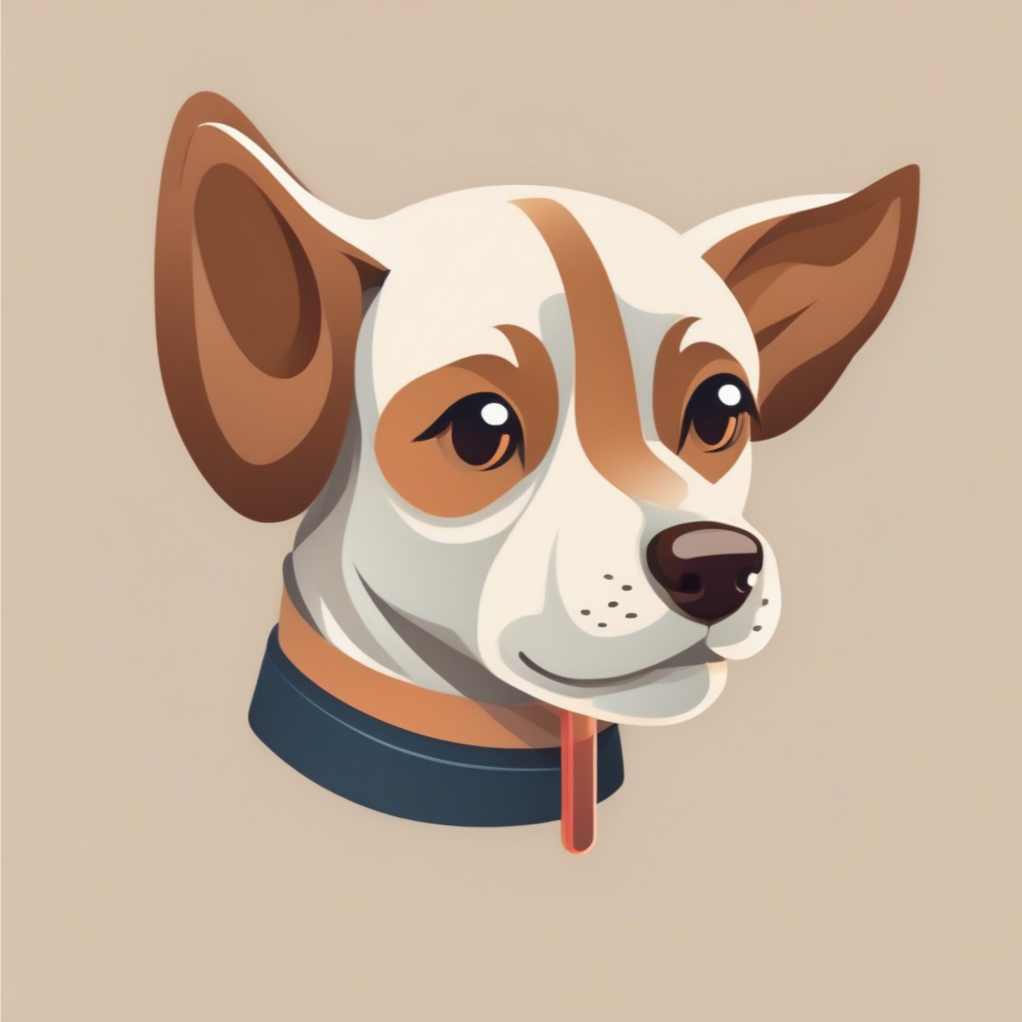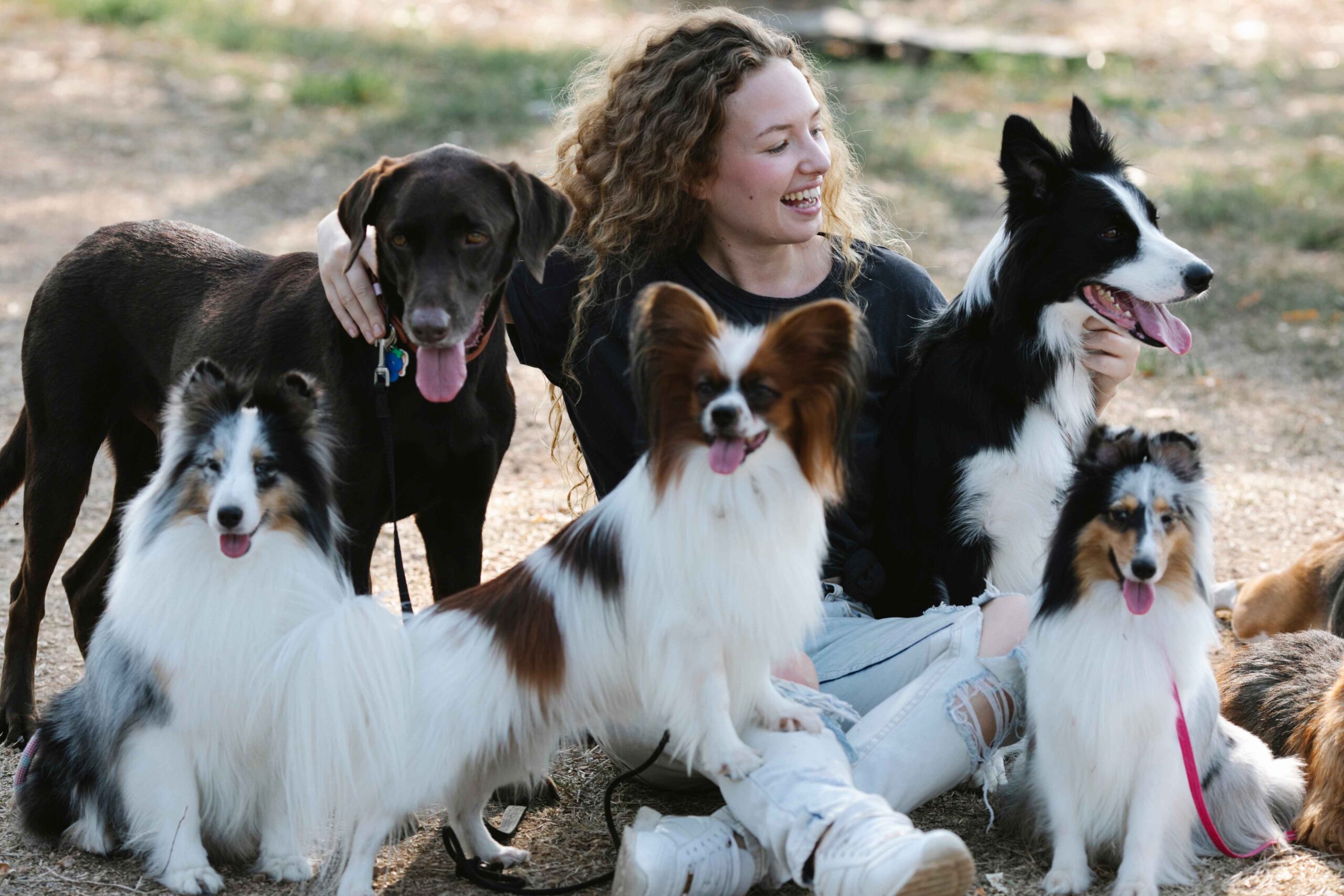Imagine this: You’ve had a long, exhausting day, and you come home to a wagging tail and a warm, furry friend who’s overjoyed to see you. That unwavering enthusiasm is just one of the many ways dogs show their loyalty to their human companions.
Dogs’ loyalty can be traced back to their evolutionary history. Domestic dogs, descendants of wolves, were once tamed by humans who offered shelter and food in exchange for protection. This age-old reciprocal relationship is embedded in your dog’s genes, giving rise to their unwavering loyalty.
In this article, we’ll delve into the fascinating world of canine loyalty, exploring why our four-legged friends are so devoted.
- The Evolutionary Roots of Loyalty
- The Biological Basis of Loyalty
- Social Pack Animals: The Loyalty Factor
- Communication and Bonding
- The Role of Training and Socialization
- The Power of Positive Interaction
- Loyalty in Different Breeds
- The Psychological Benefits of Loyalty
- Loyalty in Service and Working Dogs
- Nurturing Loyalty in Your Dog
- Is there a difference in loyalty among dog breeds?
- Why are dogs loyal to abusive owners?
- Conclusion
- Frequently Asked Questions about the Factors Behind Canine Loyalty
Dogs’ loyalty to abusive owners may stem from a self-preservation instinct. They often perceive their food and shelter arrangements as being at risk, so they become extra protective of their owners.
The Evolutionary Roots of Loyalty
Dogs have been our steadfast companions for thousands of years. From their early days as wolves to their role as our closest domesticated friends, their loyalty has played a pivotal role in their survival. This loyalty to humans may have been an evolutionary advantage, providing protection and sustenance in return for their loyalty.
The Biological Basis of Loyalty
At the heart of the canine-human bond lies a hormone called oxytocin, often referred to as the “love hormone.” When we pet our dogs or gaze into their eyes, oxytocin levels in both human and canine rise, forging an emotional connection that deepens loyalty. Dogs become a source of comfort and security.
Social Pack Animals: The Loyalty Factor
Dogs are inherently social animals, thanks to their wolf ancestry. In the wild, they formed packs with a strict social structure. Today, your family is their pack. Loyalty to the pack translates into loyalty to their human family, making them incredibly protective and caring.
Dogs trust humans because of their natural pack instincts. Dogs, as pack animals, have an inherent need to form bonds and build trust with their pack members. When you bring a dog into your family, they perceive your family as their pack and trust you as their own. This trust is crucial for their well-being and loyalty.
Communication and Bonding
While dogs can’t speak our language, they’re masters of non-verbal communication. Through body language, vocalization, and simply spending time with their humans, they learn to understand us and express their needs. Effective communication fosters trust and, in turn, loyalty.
The Role of Training and Socialization
Early training and socialization are crucial in developing a strong bond with your dog. This process helps them understand their place in the family and builds their trust in you. Positive reinforcement is key – it helps foster loyalty without the need for dominance-based techniques.
The Power of Positive Interaction
Affection, play, and companionship go a long way in strengthening the bond. Regular walks, playtime, and quality time together are essential. The more you invest in these interactions, the deeper the loyalty your dog will show.
Loyalty in Different Breeds
Different dog breeds exhibit varying degrees of loyalty, but each is special in its own way. Some breeds are renowned for their loyalty, like the German Shepherd, while others, like the independent Basenji, may display it differently. Understanding your dog’s breed traits can help you connect better.
The Psychological Benefits of Loyalty
Dogs’ loyalty isn’t just heartwarming; it also has tangible benefits for humans. Studies have shown that spending time with dogs can reduce stress, anxiety, and depression. Their unwavering loyalty becomes a source of emotional support, offering comfort during challenging times.
Loyalty in Service and Working Dogs
Service dogs, search and rescue dogs, and working dogs are living proof of canine loyalty. Their loyalty to their human partners is awe-inspiring, and it’s this loyalty that allows them to perform their jobs effectively, often saving lives and providing essential support.
Nurturing Loyalty in Your Dog
Fostering loyalty in your own dog is a two-way street. Be patient, communicate, and build trust. Invest in training and socialization, and never underestimate the power of a simple cuddle session or a game of fetch. Your loyalty to your dog will be reciprocated tenfold.
Is there a difference in loyalty among dog breeds?
Most dog breeds exhibit strong loyalty. Some, like Chihuahuas, boxers, and labs, stand out for their loyalty to their owners. However, it’s important to note that any dog breed can be loyal, and a few dogs who haven’t experienced a close-knit group may not have developed the same level of loyalty. Nonetheless, this is the exception rather than the norm.
Why are dogs loyal to abusive owners?
Dogs’ loyalty, even in abusive situations, often stems from a deep-rooted self-preservation instinct. They associate their well-being, including food and shelter, with the owner’s safety. If a dog has a history of abuse, heightened protectiveness might be observed as a coping mechanism
Conclusion
Dogs are not just pets; they are loyal companions who fill our lives with love and happiness. Their loyalty is a remarkable bond forged through thousands of years of evolution and a deep biological connection. Cherish and nurture this extraordinary bond, and you’ll have a loyal friend by your side through thick and thin.
Further reading:
- 10 Reasons Dogs Are Better Than Cats
- Dog Walking Unleashed
- Why Do Dogs Have Tails?
- Why Are Dog Noses Wet?
Frequently Asked Questions about the Factors Behind Canine Loyalty
Why is my dog so loyal to me? Your dog’s loyalty can be attributed to their pack instinct. Just like humans, dogs are social animals, and they naturally form bonds with their ‘pack.’ When you provide love, care, and companionship, your dog sees your family as their pack and you as their trusted leader. This deep-rooted connection and loyalty are fundamental to their nature.
Are dogs genuinely loyal? Yes, dogs are genuinely loyal. Their loyalty is often unconditional, based on trust, companionship, and the emotional connection they form with their owners.
Do dogs really love their owners? Yes, dogs can form a strong emotional attachment to their owners, often described as love, though it may not be precisely the same as human love.
Which dog breed is most loyal? Loyalty varies among breeds, but breeds like the Labrador Retriever, German Shepherd, and Golden Retriever are often cited as some of the most loyal.
What makes dogs more loyal than other pets? Dogs’ loyalty can be attributed to their social nature, strong pack instincts, and domestication history, which has ingrained loyalty as a core trait.
Is loyalty a natural trait in all dog breeds? Loyalty is a common trait in most dog breeds, but its intensity and expression can vary based on the breed’s inherent characteristics.
Can you explain the evolutionary reasons for a dog’s loyalty? Dogs’ loyalty likely evolved as a survival advantage; forming bonds with humans increased their access to food, protection, and resources, enhancing their chances of survival.
How do dogs demonstrate their loyalty to their owners? Dogs demonstrate loyalty through behaviors like following, protecting, seeking affection, and responding to their owner’s emotional cues.
Are there scientific explanations for a dog’s loyalty to humans? Scientists suggest that oxytocin, a hormone related to bonding and social interaction, plays a role in the strong emotional connection between dogs and humans.
Do dogs have a preference for certain individuals in their families, and why? Yes, dogs can have preferences for specific individuals based on the quality of the bond they’ve formed and the care and attention they receive.
Can loyalty in dogs be nurtured or trained? Loyalty can be nurtured through positive reinforcement, bonding activities, and consistent care, but it also depends on the dog’s individual temperament.
What are the signs that my dog is loyal to me? Signs of loyalty include constant companionship, protective behavior, attentiveness, and displays of affection.
Are there differences in loyalty between male and female dogs? Loyalty is not significantly gender-dependent. It’s more about individual temperament and experiences.
How does a dog’s loyalty impact their behavior and interactions with humans? Loyalty positively influences a dog’s behavior, making them more obedient, attentive, and eager to please their owner.
Are there instances where a dog’s loyalty might waver? External factors like neglect, abuse, or significant changes in the dog’s environment can impact a dog’s loyalty.
Can a dog’s loyalty be affected by their upbringing or environment? Yes, a dog’s upbringing and environment can significantly influence their loyalty. Positive experiences foster stronger loyalty.
How can I strengthen the bond and loyalty between my dog and me? Building loyalty involves spending quality time, providing consistent care, positive reinforcement, and training to enhance the bond.
Do different dog breeds exhibit varying levels of loyalty? Yes, different breeds can exhibit varying levels of loyalty, but it’s essential to consider individual temperament as well.
Are there any historical or cultural factors that contribute to the perception of dog loyalty? Historical associations of dogs as working and companion animals, and cultural stories of loyalty, have contributed to their perception as loyal.
What can I do to build trust and loyalty with a newly adopted dog? Start with patience, consistency, positive reinforcement, and gradually acclimating them to their new environment.
Can a dog be loyal to multiple family members simultaneously? Yes, dogs can be loyal to multiple family members, forming strong bonds with each member of the household.
Are there any studies or research on the psychology of dog loyalty? Numerous studies explore the psychology of dog loyalty, examining the role of hormones, brain activity, and attachment patterns.
How can I ensure my dog remains loyal as they age? Maintain a consistent, loving relationship, offer appropriate care, and adapt to their changing needs to sustain their loyalty throughout their life.

